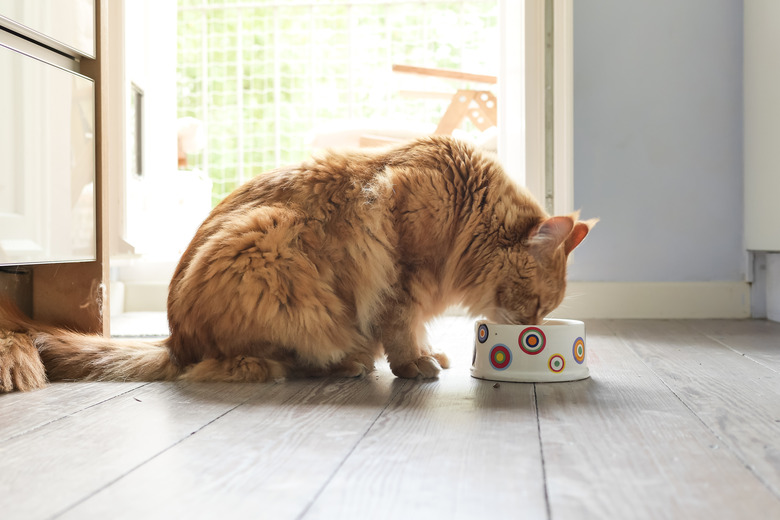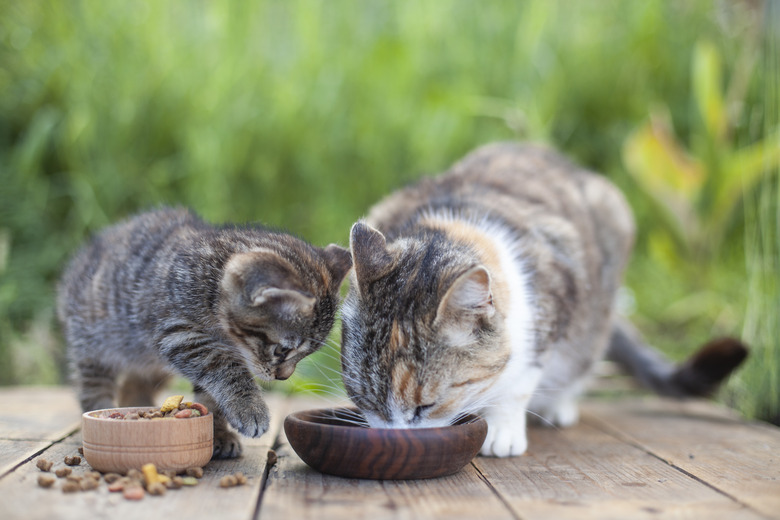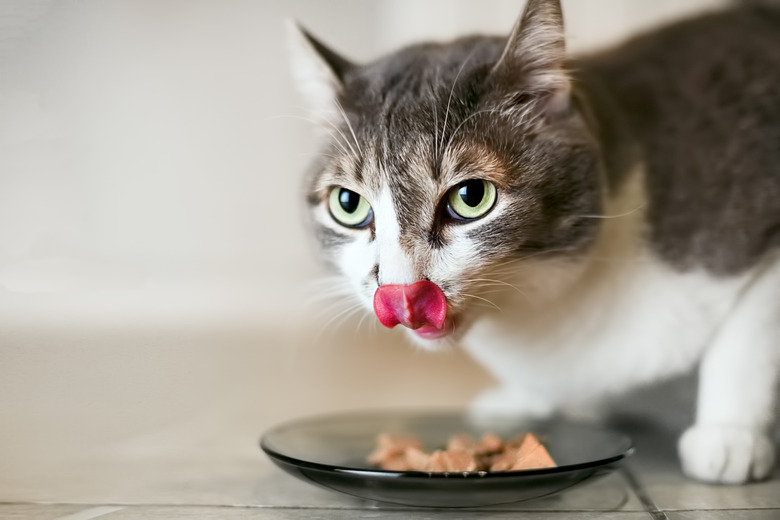What To Feed A Sick Cat That Won't Eat
The task of finding the right food for sick cats can often be challenging, to say the least. Eating is essential to keeping your cat strong during an illness, but you might need to resort to some trickery to make the food attractive and irresistible for your cat. Otherwise, they might simply turn their nose up at the food offered.
If your cat has not eaten anything for more than 24 hours, bring him to your veterinarian immediately, as this can lead to hepatic lipidosis, a liver condition that can be fatal.
Provide fresh water
Provide fresh water
Before we delve into how to get creative when finding food for sick cats, it's important to focus on the fact that all cats need water and food to survive. Any cat that cannot drink water will decline rapidly, and their life will be in crisis at that point. Cats can go a little longer without food, but water is crucial to survival.
To be sure your cat is getting water, it's a good idea to separate them from other pets in the household. That way, you can monitor their progress. Remember that wet (canned) food is not a substitute for fresh water.
Cats who refuse to drink water may need to be given water by oral syringe. Your vet should be consulted before things get this serious. They will know what to do. In extreme cases, kitty may need intravenous fluids provided at the vet's office, and a possible overnight or day-long stay at the vet.
Rarely, a veterinary professional can insert a port for fluids or medication, and send the cat home. A savvy pet parent should be able to utilize the port to introduce fluids or medication into the cat intravenously with just a little bit of training.
Food for sick cat
Food for sick cat
If your cat is sick, she may have lost her appetite, especially if she has a congested nose and can't perceive smells properly. One way to deal with this is to make the food as palatable as possible.
If your cat won't eat, they need to be tempted to eat. Feeding a sick cat requires some trial and error, finesse, and just a bit of patience. For example, if you're feeding your sick cat wet food, you can try warming it to bring out the aromas. You can try adding a tablespoon of fish oil, chopped pieces of fresh fish, or chicken broth to make it more appetizing.
Some cats are blind or sight-impaired, and may have difficulty finding the food or water in the house. Make sure it is accessible to the cat, and add some strong-smelling enticement to attract them to the food dish.
While this is not highly recommended, occasionally trying a little dog food or human food is not out of the question if your cat simply won't eat. Believe it or not, some cats are crazy about dog food!
Supplement his diet
Supplement his diet
If your cat is still eating but in smaller quantities, you might want to add a feline vitamin supplement gel to his diet. These gels can be fed directly as they are available in appetizing flavors such as fish or chicken. Many cats will lick it off your finger or you can mix it into your cat's food.
Another idea for supplementation is what's known as a topper for cat food. These commercially available items come in different varieties, flavors, and consistencies. Some are like a meat tenderizer that is a flavored powdery substance that comes in a shaker. Others are liquid in pouches, or flakes that can be sprinkled on top of food.
These products make food more enticing, but it won't help if the cat has a mouth or dental issue, or a facial paralysis such as from palsy or a stroke. Cats with these afflictions are especially challenging to feed, since often their facial muscles don't function, or the pain is too great to make eating enjoyable.
In the case of a cat with orofacial pain, or facial paralysis, a liquid diet or a feeding tube may be the only way to proceed.
Try a liquid diet
Try a liquid diet
Liquid diets are formulated for cats with specific medical conditions. For example, liquid diets are often recommended for cats with kidney disease and are low in protein so they are easy to digest but still provide all the nutritional needs of your cat. Liquid diets also are available for cats who need additional nutrition when recuperating from an illness.
Liquid diets can be administered in a number of ways, including freely — such as putting it in a bowl and allowing your cat to lick it — or via a feeding syringe. This is a plastic syringe provided by your vet that you can fill with liquified food, and gently push into the cat's mouth. Watch out for claws and teeth, though!
Generally speaking, cats do not like to be force fed in this manner, and it should only be done as a last resort. Getting a sick cat to eat voluntarily is best.
Bland diets, which consist of low-fiber, soft or pureed foods, also can help if your cat is feeling nauseous or sick. Some of the cat food manufacturers now offer gravy-like food in sealed pouches that are really stinky, and cats love that smell.
Another idea when all else has failed, is to try human baby food. You'd be surprised to know that baby food flavors include beef, and chicken — and, yes, cats love these human foods. The texture is pulverized, almost like a pudding, so it's easy for kitty to eat, even if she has dental or other problems such as facial palsy (not uncommon in cats).
Very sick cats can be fitted with a feeding tube by your veterinarian and fed a liquid diet. This is almost always a last resort, and your veterinary professional will know when all efforts have been exhausted before turning to a feeding tube.
Prescription foods
Prescription foods
Certain long-term illnesses, such as diabetes, inflammatory bowel disease and chronic renal failure, might require feeding a prescription veterinary diet. The same is true for cats with certain medical conditions, such as obesity or urinary blockage.
These diets must be obtained through your veterinarian and must be fed exclusively, meaning you can't offer additional foods or treats to your cat while he's on a prescription diet program. Several different companies — Royal Canin, Purina, and others — make variations of these diets.
Manufacturers also have an array of liquid or powdered products that contain all the nutrients a cat needs. Similar to dietary nutrition drinks that babies or elderly humans consume when they are unable to get adequate nutrition, these items are available online or through a veterinarian. The mixtures provide all necessary vitamins and nutrients needed, and substitutes for food for sick cats.
If you have a finicky cat, you might need to switch brands or flavors to find one that best suits him.
Above all, make sure your cat is comfortable, safe and as happy as can be expected while you face the challenge of revitalizing him and his appetite due to illness or other reasons. Your cat is a member of your family, and deserves lots of love and attention during difficult times.


